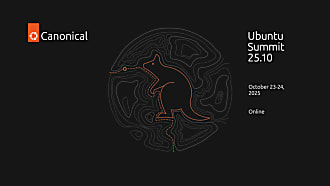Mark Shuttleworth
on 30 October 2018
Statement on the IBM acquisition of Red Hat
Over the past two years, many prominent Red Hat customers have selected Ubuntu and engaged Canonical to build leaner, more efficient open source infrastructure and solutions for important new initiatives. Among them we count the world’s leading banks, telcos, governments, universities, airlines, insurance companies, technology giants and media conglomerates. Several have spoken publicly, and with increasing confidence, of their Ubuntu success.
Public sources of data on Linux trends show this move clearly. From Kubernetes to public cloud to OpenStack to machine learning and AI, from the far edge of IoT through edge-cloud and core data center operations, the momentum for Ubuntu in the enterprise has accelerated as companies unleash their developers to compete in the digital landscape.
The acquisition of Red Hat by IBM is a significant moment in the progression of open source to the mainstream. We salute Red Hat for the role it played in framing open source as a familiar, shrink-wrapped replacement for traditional UNIX on ‘Wintel’ terms. In that sense, RHEL was a crucial step in the open source movement.
Nevertheless, the world has moved on. Replacing UNIX is no longer sufficient. The decline in RHEL growth contrasted with the acceleration in Linux more broadly is a strong market indicator of the next wave of open source. Public cloud workloads have largely avoided RHEL. Container workloads even more so. Moving at the speed of developers means embracing open source in ways that have led the world’s largest companies, the world’s fastest moving startups, and those who believe that security and velocity are best solved together, to Ubuntu.
We appreciate the confidence these companies have shown in Ubuntu and Canonical, and the engagement we have with the community that has sprung up around us. We feel keenly the responsibility we have to deliver the work of so many open source contributors – cleanly and efficiently – to a growing market. We are determined that Ubuntu is judged as the world’s most secure, most cost-effective and most faithful vehicle for open source initiatives. We look forward to helping them all deliver the innovation on which their future growth depends.
Let’s take open source to the next level.
Mark Shuttleworth
Canonical



